Nyeri Governor Mutahi Kahiga has found himself at the center of national outrage after making remarks that many Kenyans see as cruel, divisive, and completely out of place during a period of mourning.
His words, which appeared to celebrate the death of former Prime Minister Raila Odinga, have sparked anger across the country and drawn criticism from leaders and citizens alike.
The timing and tone of Kahiga’s comments have been described as deeply insensitive, especially coming just days after Raila’s passing on October 15, 2025. Raila, who died in India at the age of 80 while receiving treatment for a heart attack, was widely respected as one of the country’s most influential political figures and a champion of democracy.
His death united the nation in grief, with condolences pouring in from across political and regional lines. But as Kenyans reflected on his long struggle for justice and reform, Kahiga chose to use the moment to make remarks that many say disrespected both the man and the nation.
A video from a public gathering in Nyeri captured the governor telling the crowd that God had “heard the cries” of the Mount Kenya people and “done His wonders” because national resources were being directed toward Western and Nyanza regions during Raila’s influence.
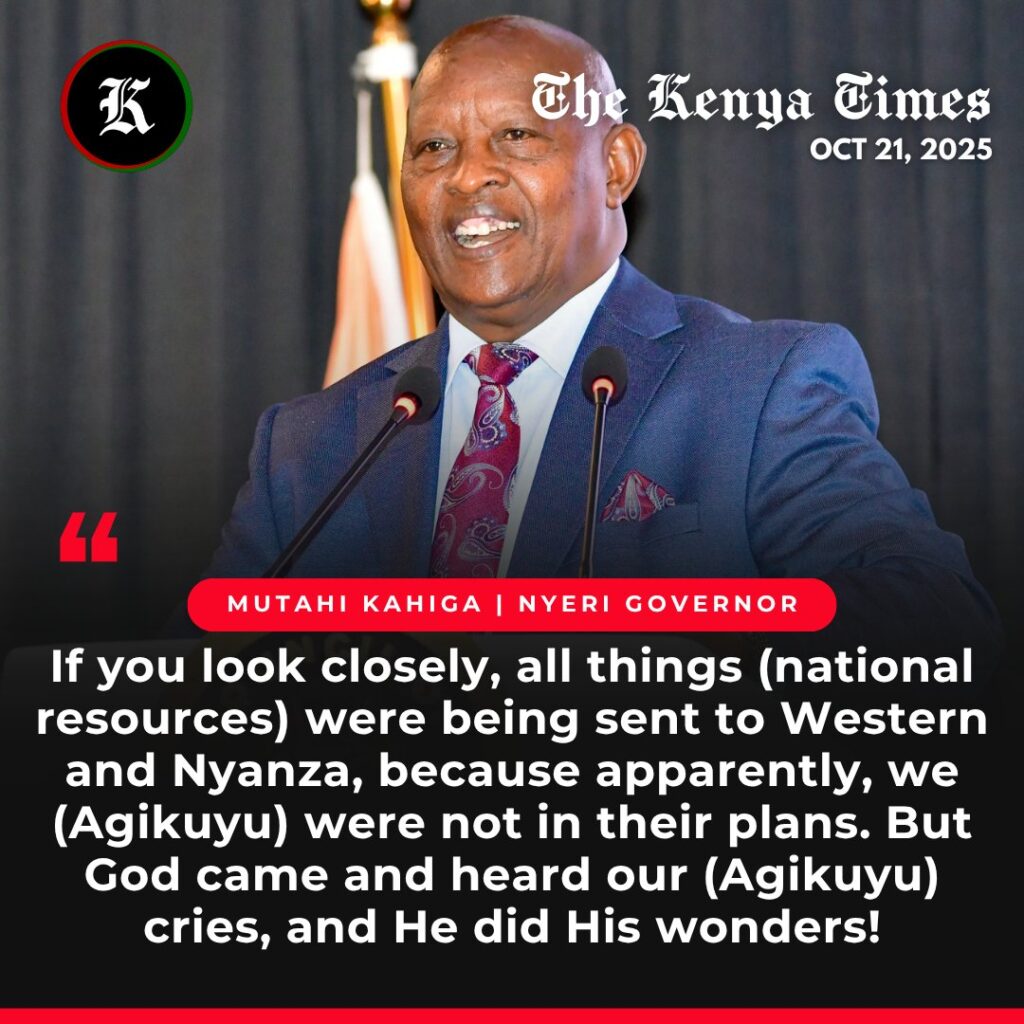
To many listeners, this sounded like Kahiga was implying that Raila’s death was a divine act that benefited one community at the expense of another. The video quickly went viral, sparking widespread condemnation. Social media users accused Kahiga of mocking death and using God’s name to justify tribal politics.
The idea that a sitting governor could openly appear to rejoice in someone’s death has been described as both shocking and shameful.
This controversy is not the first time Kahiga has been accused of divisive rhetoric, but many observers believe this latest episode crosses a moral line. As a governor, his duty is to unite people and show leadership during sensitive national moments, not to inflame divisions. By linking Raila’s death to regional rivalries, Kahiga not only insulted Raila’s memory but also risked deepening long-standing political tensions in the country.
Raila was not just another politician he was a symbol of resilience who spent years in detention for standing up against dictatorship. He fought for the freedoms that all Kenyans enjoy today. For someone in Kahiga’s position to make light of such a man’s passing reveals a disturbing lack of empathy and maturity.Kahiga’s political ties have also come under scrutiny.
He is a well-known ally of the impeached Deputy President Rigathi Gachagua, who has often been accused of promoting ethnic narratives to maintain his political influence in the Mount Kenya region. Kahiga’s words mirror the same divisive tone that defined Gachagua’s politics framing national debates as battles between communities.
Reports suggest that Gachagua has remained silent since the remarks were made public, neither condemning nor supporting them.
His silence has fueled speculation that he shares Kahiga’s views or at least sees political advantage in them. Critics argue that both men are exploiting regional sentiments for personal survival, ignoring the need for national unity.
The backlash against Kahiga has been strong and swift. Religious leaders, civil society groups, and political figures from various parties have condemned his remarks.
Some have called for him to issue a public apology, while others say he should step down for bringing shame to his office. A former legislator from the Mount Kenya region described his comments as “heartless” and “a betrayal of our values.” Many Kenyans have reminded him that in Kikuyu culture, speaking ill of the dead is taboo and considered a curse.
At a time when the nation should be united in mourning and reflection, Kahiga’s comments have instead reopened old wounds
Raila Odinga’s death should have been a time to honor his contribution to Kenya’s democracy and his lifelong fight for justice. Instead, it has become a reminder of how far the country still has to go to overcome hate and tribalism.
Regardless of Kahiga’s intentions, his remarks have damaged his image and disappointed many who looked to him for leadership.
Death is never a victory for anyone, and using it to score political points only diminishes those who do so. Raila’s legacy of courage and unity will live on, but Kahiga’s reputation may not recover easily from this moment of cruelty. Kenya deserves leaders who bring people together, not those who divide them for applause.



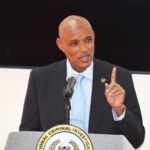




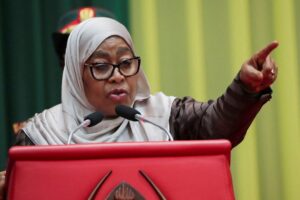
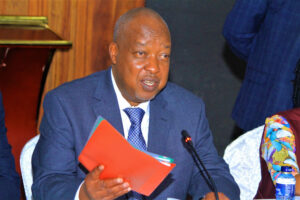

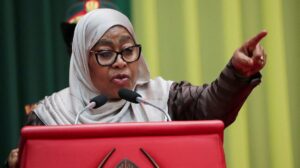
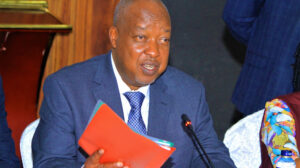

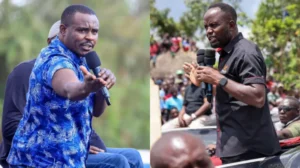

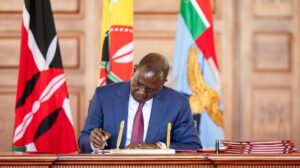



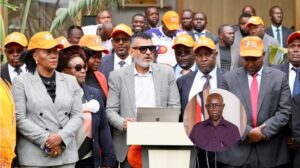
Add Comment